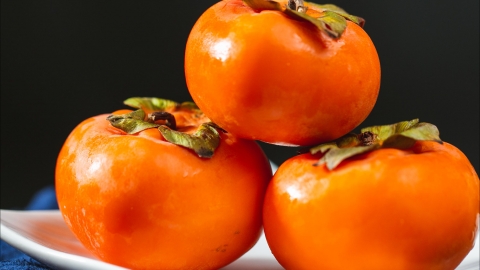Can I eat persimmons during my menstrual period?
Generally speaking, it is acceptable to eat persimmons during menstruation, although excessive consumption is not recommended. Detailed explanations are as follows:

Persimmons contain nutrients such as vitamin C and dietary fiber, which can help replenish nutrients needed during menstruation. Dietary fiber can also promote intestinal motility and alleviate potential constipation issues during the menstrual period. However, only ripe persimmons should be consumed, as unripe persimmons have high levels of tannic acid, which may irritate the gastrointestinal tract. Additionally, the quantity consumed at one time should not be excessive; it is recommended to eat half to one persimmon per serving to avoid overburdening the body.
During menstruation, it is important to avoid eating persimmons on an empty stomach. When the stomach is empty, the high concentration of gastric acid can react with the tannic acid in persimmons, forming indigestible substances that may cause gastrointestinal discomfort. Furthermore, chilled persimmons should also be avoided. During menstruation, the body is relatively sensitive, and cold foods may stimulate uterine contractions, worsening abdominal pain or causing poor discharge of menstrual blood. If you have a weak gastrointestinal function, a history of dysmenorrhea, or experience worsening abdominal pain, diarrhea, or other discomfort after eating persimmons, you should stop consumption immediately and seek medical advice when necessary.






